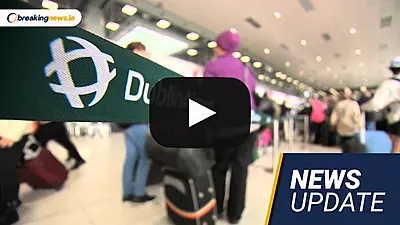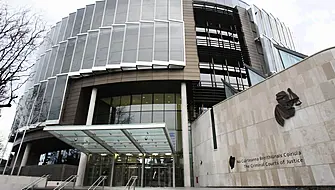A High Court judge has dismissed a Syrian man’s challenge to the Minister for Justice’s refusal to allow reunification for his son who turned 18 while the father’s application for international protection was being decided.
Mr Justice Cian Ferriter said the terms of section 56 of the International Protection Act 2015, which require a child of a refugee to be under 18 at the date of a family reunification application, is a matter of policy choice by the legislature and it follows that this section is not in breach of EU law, he said.
Ireland is not a party to the EU’s Family Reunification Directive, and the European Convention on Human Rights (ECHR) does not provide for a self-standing right to family reunification, the judge added.
Mr Justice Ferriter dealt with two similar judicial review challenges brought by men who sought to reunify sons who had "aged out" while their international protection applications were being decided.
The first applicant sought international protection when he arrived in Ireland in February 2020 on the basis he could not return to his native Syria for fear of persecution from the regime and militias as a Sunni Muslim.
At this point, his two sons, who remained in Syria with his wife and daughter, were aged 16 and 18. His younger son turned 18 about a month before the man was granted refugee status on June 9th, 2021.
Refusal
The man applied for family reunification for his wife, daughter and two sons on July 7th. Two days later, the Minister for Justice refused the application in respect of the man’s two sons.
The other applicant, a Somali man, was granted refugee status in November 2020 and applied for family reunification for wife and children in January 2021, about four weeks after his son had turned 18. The application for his son was refused.
In their separate judicial review challenges, the men maintained there had been a delay in processing his international protection application, which led to his son "ageing out" by the time he was in a position to pursue family reunification.
The judge found that the impact of the Covid-19 pandemic on the international protection process was a valid reason for the delay.
However, he said there was "considerable force" to the contention by the Somali man’s counsel that it is unfair for the entire consequences of that delay to be borne by him.
Mr Justice Ferriter said it was his view that the delay "must be a relevant factor" in the Minister’s exercising of her discretion in reviewing her decision not to grant a visa to the man’s son under a different scheme.
Similarly, "appropriate weight" should be given to the delay experienced by the Syrian man when considering his pending application for his son under that other scheme, the judge said.
Francovich damages
The Somali man had an additional ground of challenge concerning an alleged failure by the State to transpose the provisions of Article 22 of the Qualification Directive.
The article relates to providing people who have been granted protection status with access to information about the rights and obligations relating to that status. This should be given as soon as possible in a language likely to be understood by them.
The man complained he had not been informed at the time he was granted refugee status that he would need to apply for family reunification for his child before that child turned 18.

For this the man sought "Francovich" damages, which can be awarded against a State that breaches EU law.
The judge found there was a breach of the man’s Article 22 rights as he was not informed in Somali about his rights to family reunification under section 56. The breach was sufficiently serious to qualify for an entitlement to Francovich damages, he said.
There was a "clear causal link" between this rights breach and the man’s failure to apply for family reunification for his son prior to him turning 18, the judge said.
Mr Justice Ferriter adjourned for further consideration the claim for damages pending determination by the Minister of a review of the man’s claim for family re-unification for his son under the alternative visa scheme.







